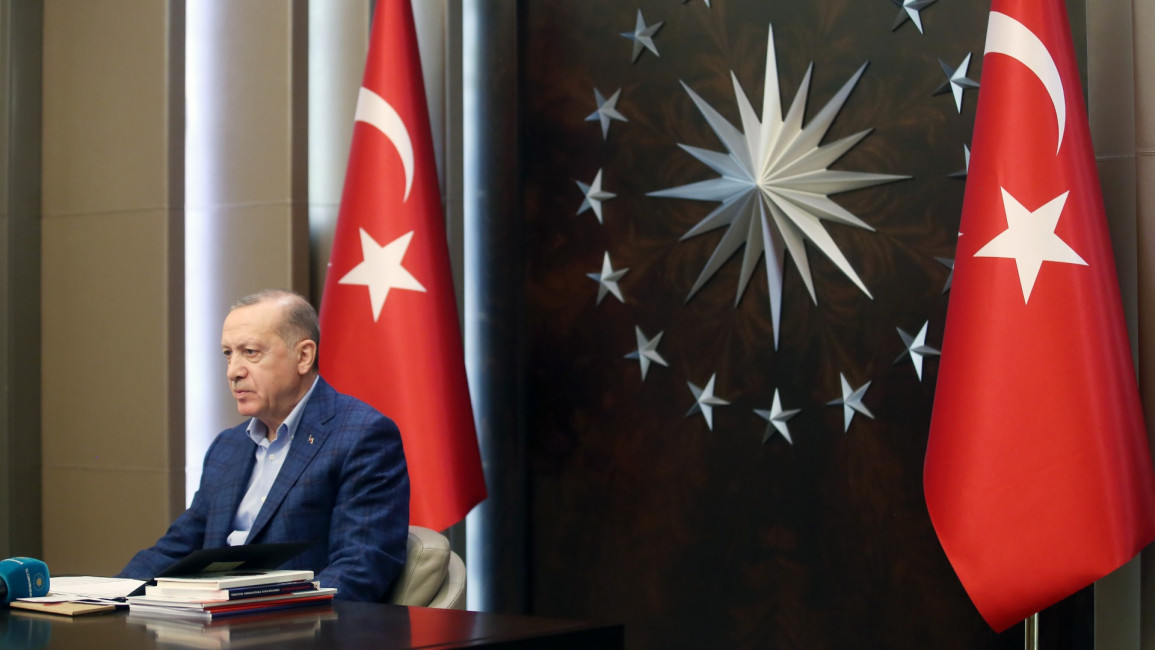Turkey won't yield to 'pirates' in eastern Mediterranean waters, Erdogan warns
Long-seated suspicions between regional powers resurfaced when Turkey sent a research vessel accompanied by warships off the Greek island of Kastellorizo last week.
The European Union urged Turkey to "immediately" halt on Sunday and NATO said Secretary General Jens Stoltenberg expressed his "concern" in a call with Turkish Foreign Minister Mevlut Cavusoglu on Wednesday.
But Erdogan sounded undeterred.
"We're 100 percent right on this issue," the Turkish leader said on a visit to a new solar panel production plant.
"If we give in to the pirates, we will not be able to look future generations in the face. We cannot leave to our children a country unable to defend its own rights, lacking self-confidence."
Erdogan added that Turkey would not be lectured by "colonialist" powers and would defend "its rights until the end".
The last barb appeared to be aimed at France - a NATO ally with which Turkey is also at odds in Libya and other conflict-torn parts of the Middle East.
France sent in its own military assets in support of Greek warships monitoring what Turkey was up to last week.
Twitter Post
|
Yet Erdogan has tempered his rhetoric with calls for dialogue throughout a crisis some analysts view as the most serious in the region since Greece and Turkey nearly went to war over some Aegean islets in 1996.
"We are awaiting steps from our interlocutors that will decrease tensions, lead the way to dialogue," Erdogan said.
Collision at sea
Erdogan last week hinted that the Oruc Reis research vessels and its accompanying fleet of five warships had been involved in an incident with another country's ships.
A military source in Athens confirmed to AFP a report in the Greek newspaper Kathimerini saying there was a collision involving a Turkish frigate and a Greek navy ship.
Kathimerini said the incident occurred on August 12 and blamed it on a Turkish navigation "error".
Ankara has issued no comment since Erdogan said last Friday that a Turkish ship accompanying the Oruc Reis had given a "necessary response" to another warship.
The escalation comes with a growing number of countries jostling for control over how Europe accesses newly discovered natural gas deposits in waters around Cyprus and the Greek island of Crete.
The European Union has fully backed Greece's maritime claims and sanctioned two Turkish energy executives.
Greece called for those sanctions to be expanded at a video conference of EU foreign ministers on Friday.
But German Chancellor Angela Merkel is spearheading efforts to try and get Greece and Turkey to talk their problems out.
Erdogan had previously bowed to Merkel's pressure and suspended the Oruc Reis mission to give diplomacy a chance last month.
Greece then signed an exclusive economic zone agreement with Egypt to offset a deal Turkey struck with the UN-recognised government in Libya at the end of last year.
An outraged Erdogan responded by pushing ahead with the Oruc Reis mission and conducting small military exercises in the area.
Erdogan said last week he could discuss future mediation efforts with Merkel once the Oruc Reis missions ends on August 23.
Agencies contributed to this report.
Follow us on Facebook, Twitter and Instagram to stay connected



